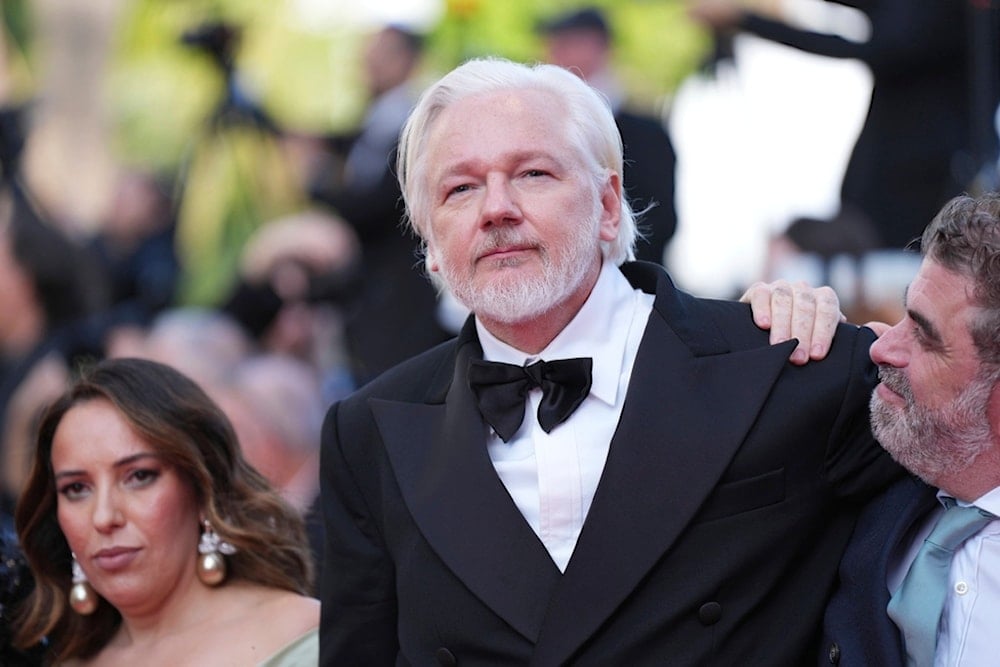Assange demands 20-year jail term for US-linked Spanish spy chief
Julian Assange has urged Spain to hand a 20-year sentence to David Morales, accusing the former Spanish officer of running a US-directed espionage operation that violated his rights and sabotaged his legal defense during his confinement in the Ecuadorian embassy.
-

Julian Assange poses for photographers upon arrival at the premiere of the film 'The History of Sound' at the 78th international film festival, Cannes, southern France, Wednesday, May 21, 2025 (Photo by Lewis Joly/Invision/AP)
WikiLeaks founder Julian Assange has demanded that Spain deliver a 20-year prison sentence to David Morales, the head of a private security firm accused of orchestrating an extensive US-backed espionage operation against him while he was confined in the Ecuadorian embassy in London.
In a statement obtained by AFP, Assange's defense team said Morales should face justice for the discovery and disclosure of secrets, bribery, money laundering, and illegal possession of weapons. The charges stem from the activities of Morales's company, Undercover Global, which managed embassy security between 2015 and 2018.
According to Spanish court filings, Morales, a former Spanish soldier, betrayed his contract with Ecuador and secretly collaborated with US intelligence agencies, passing on confidential material about Assange and his associates. Investigators say Morales began communicating with US officials in 2016, setting up a channel to funnel sensitive information at a time when Washington was determined to silence the WikiLeaks founder.
A Spanish judge concluded that Morales's company "spied on the activist and handed over illegally obtained information" about Assange, his legal team, and several visiting diplomats and political leaders, including presidents from Latin America who had expressed solidarity with him.
Spying Scandal
In 2017, Morales reportedly ordered the installation of new surveillance cameras capable of recording sound and instructed technicians to activate a live-streaming system to feed embassy footage directly to US handlers.
"He intended to open two streaming channels for online access, one official, one for Ecuador and another for 'friends of the United States'," the judge wrote, exposing how Morales's operation served American intelligence interests under the guise of embassy security.
Assange's lawyers argue that the surveillance campaign represented a gross violation of attorney-client privilege, effectively sabotaging his legal defense while he was fighting US extradition. The operation, they maintain, represents the lengths to which Washington went to persecute and intimidate the publisher who revealed evidence of US war crimes in Iraq and Afghanistan.
Justice Denied
After more than a decade of confinement, Assange was released from Belmarsh Prison in June 2024 following a plea deal with the US Department of Justice that ended years of political imprisonment. He pled guilty to a single count of conspiracy to obtain and disclose classified national defense information, with the five years he spent in British custody counted as time served.
While the agreement secured his release and allowed him to return to Australia, press freedom advocates insist the plea still represents a dangerous blow to journalism, criminalizing truth-telling and the exposure of state misconduct. Amnesty International warned that the outcome leaves a chilling message for investigative reporters worldwide.
Read more: Julian Assange to European lawmakers: 'I pleaded guilty to journalism'

 3 Min Read
3 Min Read










